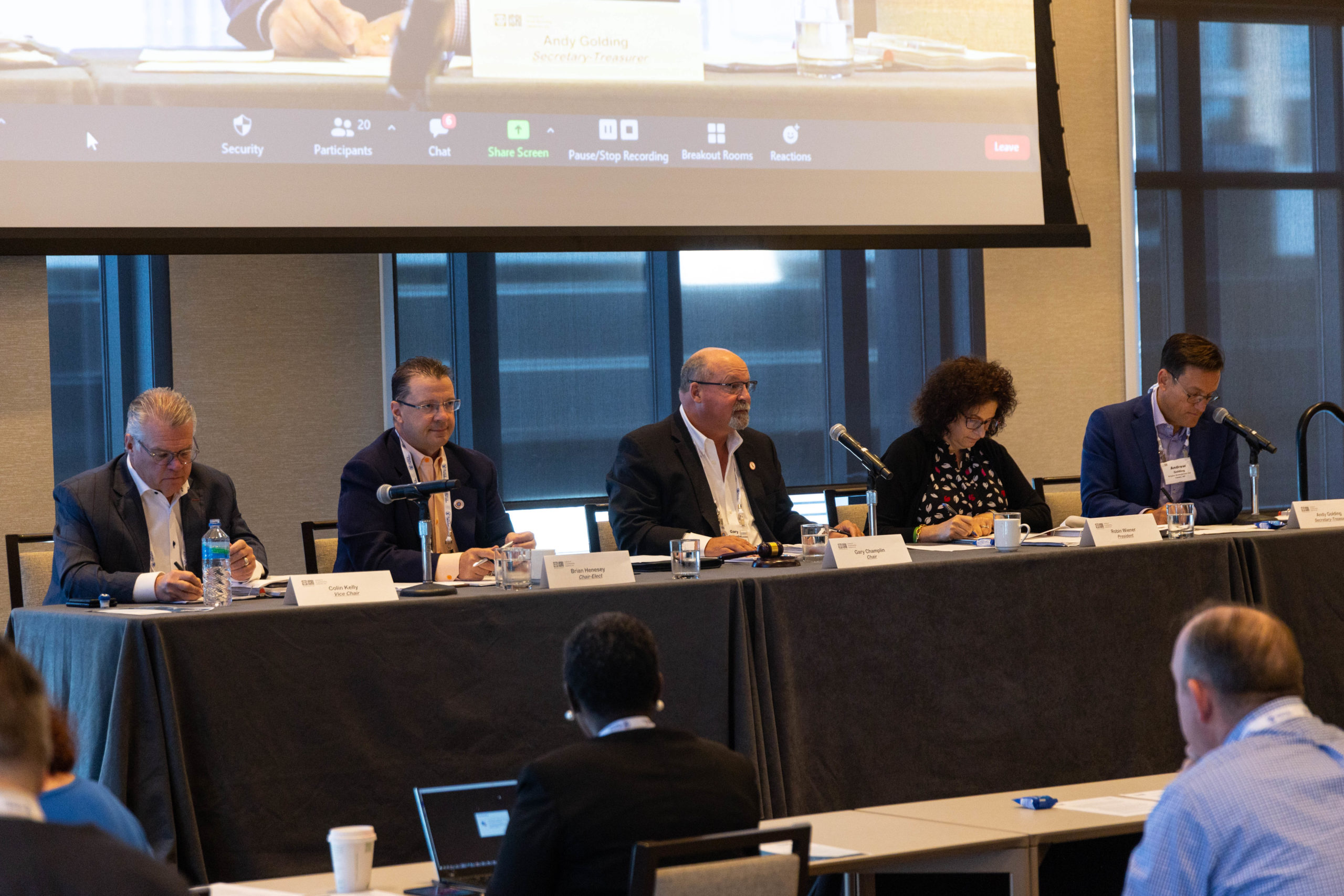On July 16, ISRI’s Board of Directors approved a change to the association’s Position on Product Stewardship. The board last updated the policy in February 2020.
The latest change was prompted by legislative proposals in several states focused specifically on the residential recycling stream, including the recent passage of the first state-level extended producer responsibility (EPR) laws in the United States in Maine and Oregon.
In the updated policy, the board added a paragraph that reads, “Should an EPR scheme be proposed in a state legislature for residential recycling that incorporates a producer responsibility organization (PRO) structure, to ensure ISRI has a seat at the table so as to protect the interests of the recycling industry, ISRI would evaluate the state’s proposal for an EPR program and seek to ensure industry’s interests are considered.”
A PRO, usually a nonprofit organization or an industry association, would be the entity designated by a producer or producers to act on their behalf to administer an EPR or product stewardship program. While ISRI generally opposes policies that interfere with market dynamics, the amended language recognizes the recycling industry’s need to be involved in discussions in states that are exploring EPR for packaging.
For 30 years, ISRI has monitored changes in the EPR landscape. In 1991, Minnesota and New Jersey passed laws which were aimed at producers of rechargeable batteries. Major battery manufacturers responded to the legislative trend by creating a voluntary recycling program in 1994. During the early 2000s, ISRI was part of a voluntary agreement—along with automakers, dismantlers, the steel industry, and the Environmental Protection Agency—that provided for the safe removal and recovery of mercury switches found in end-of-life vehicles, and has stayed active in promoting the recovery program established in 2006.
In 2005, ISRI added electronics recycling legislation to its policy book, and its first EPR policy was enacted in 2011, a year after Canada enacted packaging EPR legislation. Because attitudes toward EPR shifted among brand owners, manufacturers, and retailers over time, ISRI formed a working group in 2019 to specifically examine the changing landscape for EPR across all commodities, and that ultimately identified the residential recycling stream as the most vulnerable.
“There are states that are moving on residential recycling programs with producer responsibility structures,” notes Danielle Waterfield, ISRI’s chief policy officer. “ISRI is saying in this [amended] policy that the industry understands this, and we will be at the table.”
The private-sector recycling infrastructure in the U.S. touches almost every part of the economy—from retail stores, office complexes, residential neighborhoods, and schools, to factories, industrial operations including construction and demolition sites, and even military bases. Successful recycling in the U.S. depends upon a market‐based system—so obsolete, previously used, off‐specification, surplus, or incidentally produced materials can be processed into specification‐grade commodities and consumed as raw‐material feedstock for the manufacture of new products.
ISRI’s Pacific Northwest Chapter (PNW) engaged with state leaders about one year into Oregon’s EPR lawmaking process, while the bill was still in committee. “The legislation and concepts were pretty well baked, because we came in 12 months into the process,” says chapter President Sean Daoud, who also is vice president and treasurer at PNW Metal Recycling in Longview, Wash. Still, PNW recyclers were able to educate state policymakers and get some language related to single-stream commodities favorably changed before the bill became law.
To address facilitation of the proper recycling of difficult-to recycle-items, ISRI supports consideration of policies that are temporary in nature to support markets for recycling of those items until the markets mature. ISRI also supports measures that require consumers and manufacturers to:
- Provide a collection mechanism for difficult-to-recycle items, which could be accomplished through manufacturer-facilitated collection systems developed in cooperation with retailers or other entities, and/or
- Compensating municipalities or recyclers for costs associated with separate collection, transportation, and processing systems for difficult-to-recycle items.
Should an EPR arrangement be proposed in a state legislature for residential recycling that incorporates a PRO structure, ISRI will evaluate the state’s proposal for an EPR program. “We know it’s coming, and we want to make sure that our members’ interests are protected,” states Adina Renee Adler, ISRI’s vice president of advocacy.
Daoud offers advice for other ISRI chapters facing state EPR proposals. “Within a lot of the bills that are coming up, there will be give-and-take during the [rulemaking discussion], so do what’s best for the majority of your members,” he says. “Don’t just focus on the needs of a few members. Do what’s positive for everybody in the chapter, and keep the national advocacy team involved.”
ISRI maintains a tracker for state EPR and product stewardship legislation. Scrap News provides updates on work being done by chapters and at the national level to ensure recyclers stay informed about legislative trends. ISRI’s policy statements on major legislative topics can be found here along with other detailed information about the industry.
Photo: ISRI’s Board of Directors holds a voting session, Friday, July 16, 2021, in Washington, D.C. Photo courtesy of ISRI.










